INEZ DE BRAUW
Covert Motion
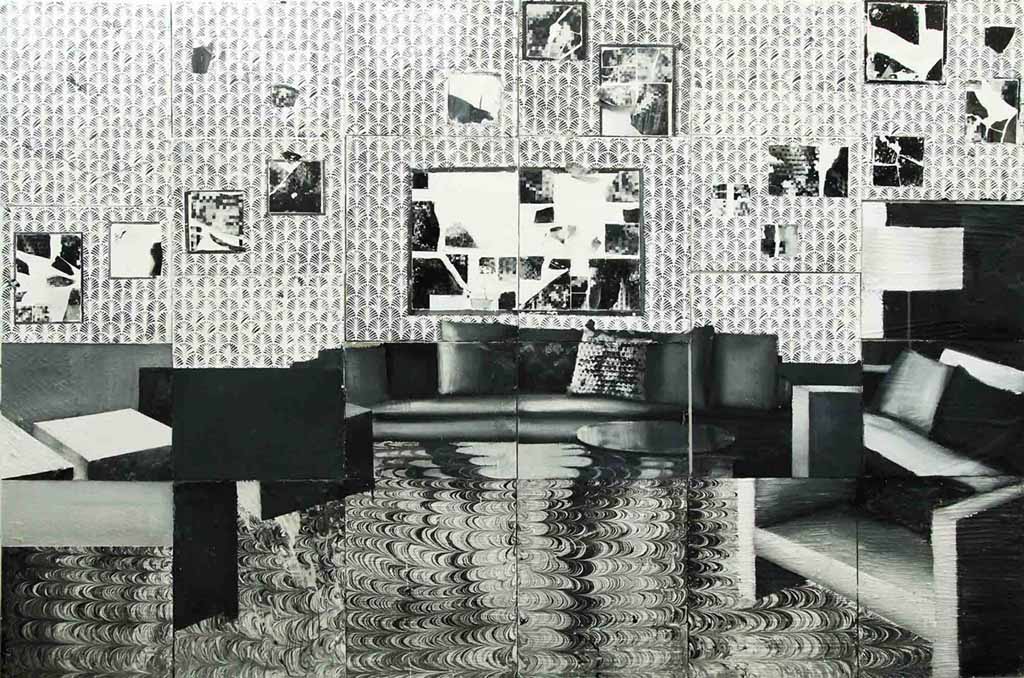
Inez De Brauw, Covert Motion Untitled 2, 2018 – Water paint, ink, acrylic paint, ceramic tiles and plaster on wood panels, 78 x 118 inch
.
OPENING: Saturday, 09 June 2018 – h. 6.00 pm
11 June 2018 – 15 September 2018
.
Text by LAURINE VERWIJEN
The work of Inez de Brauw emphasize the loss of value and the change in meaning of objects and cultural symbols through time. The big paintings, made of painted plaster on wooden panels, are inspired by interiors taken from lifestyle magazines; staged interiors that have no purpose except commercial advertisement and defining contemporary taste.
De Brauw appropriates the decorative patterns appearing on wallpapers, pillows and furniture, which by the time they appear in a magazine have lost their historical significance (For instance in Art deco times, there was a lot of knowledge about the patterns used. They were made in particular ways and the patterns had in many cases symbolic relevance.
In these (Dutch) lifestyle magazines, but also with the mass produces clothes that i’m wearing, I see that they just put something on an object to make to make it look good, without taking the origin of the patterns, or the symbolic meaning into consideration. For me these mass produced patterns on the wallpapers are empty.
I saw examples in the magazines were they for instance call Baroque elements ‘Renaissance style’, or they put an ochre color in a living room and then call it ‘Eclectic living’.
The origin, history or symbolic meaning of the patterns is -in my eyes-irrelevant within the magazines (or on my h&m clothes), they show reproductions of patterns (or furniture), use different colors, mix everything and don’t give the patterns a (correct) name. In my eyes, these life style magazine photo’s that I see in these Dutch magazines are about selling, and the object shown are mostly -above all in case of patterns-reproduced so much that the original information and therefor relevance is lost. Within my works I try to focus on this movement of information loss: how a Persian ornament referring to nature ends up without a name on this mass produced wallpaper within the advertisement.). By doing so, De Brauw allows the patterns and -mass produced furniture- to take their leading role again. They evolve and become languages, personalities. Focussing on the fluid and fragile character of the materials she works with (Ebru ‘painting on water’, painted plaster on wood) De Brauw creates new forms and allows them to evolve even further.
The forms move away from their original shape and morph into others. The big paintings are made out of panels that after their first put, can be shifted in different orders. The image becomes changeable and distortable. This migration of shapes becomes a metaphor for a feeling of being without lineage, without roots, adrift between historical specificity, kitsch and irony.
.
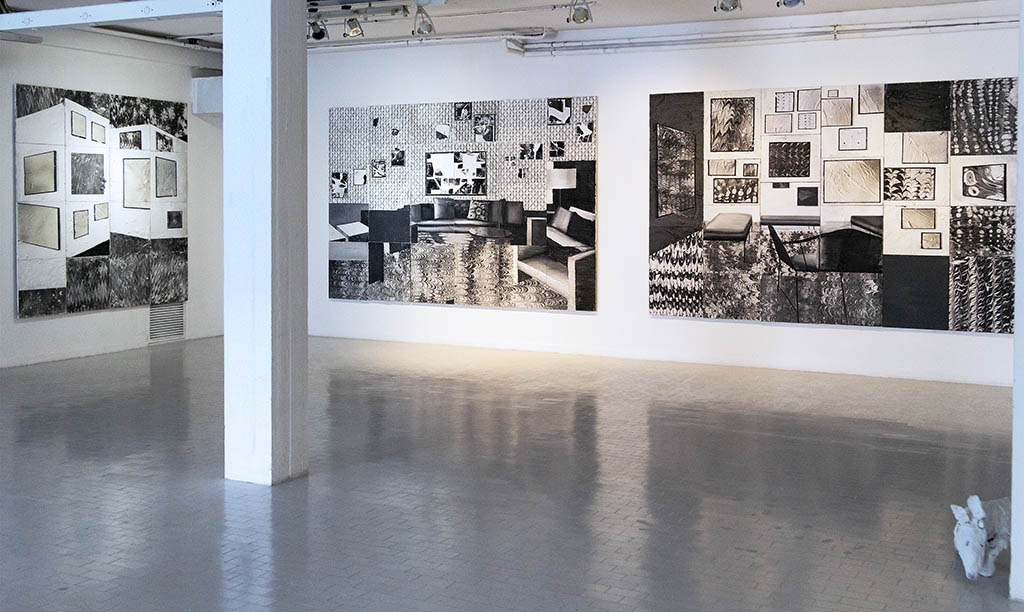
Inez De Brauw, Installation view “Covert Motion”, 2018
_______________________________________________________________________________________
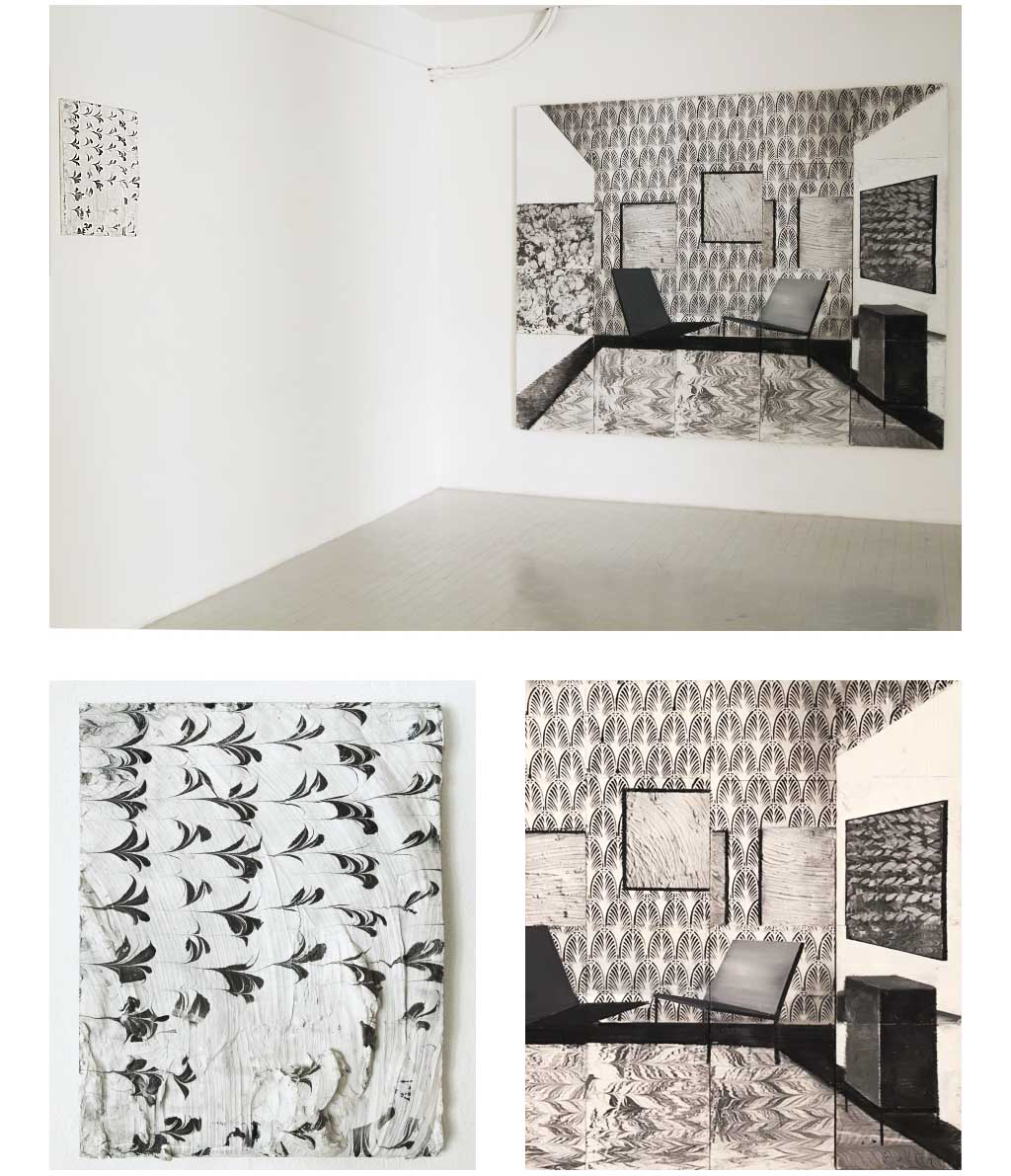
(LEFT) Inez De Brauw, II, 2018 – Water paint on plaster on wood, 19 x 16 inch / (RIGHT) Inez De Brauw, Untitled, 2018 – Water paint, ink and acrylic paint on plaster on wood, 78 x 98 inch
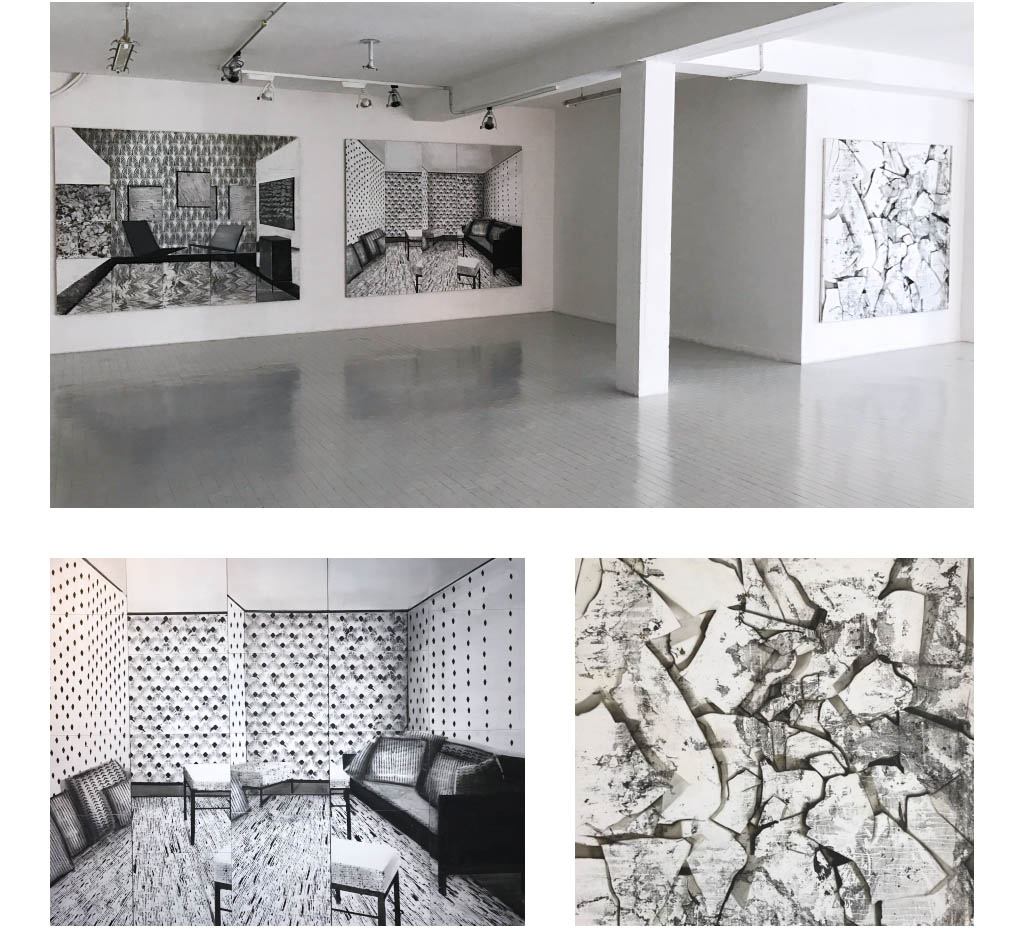
(LEFT) Inez De Brauw, Untitled, 2018 – Acrylic paint and oil on wood panels, 78 x 98 inch / (RIGHT) Inez De Brauw, Untitled, 2018 – Acrylic paint and oil on plaster on canvas, 70 x 78 inch
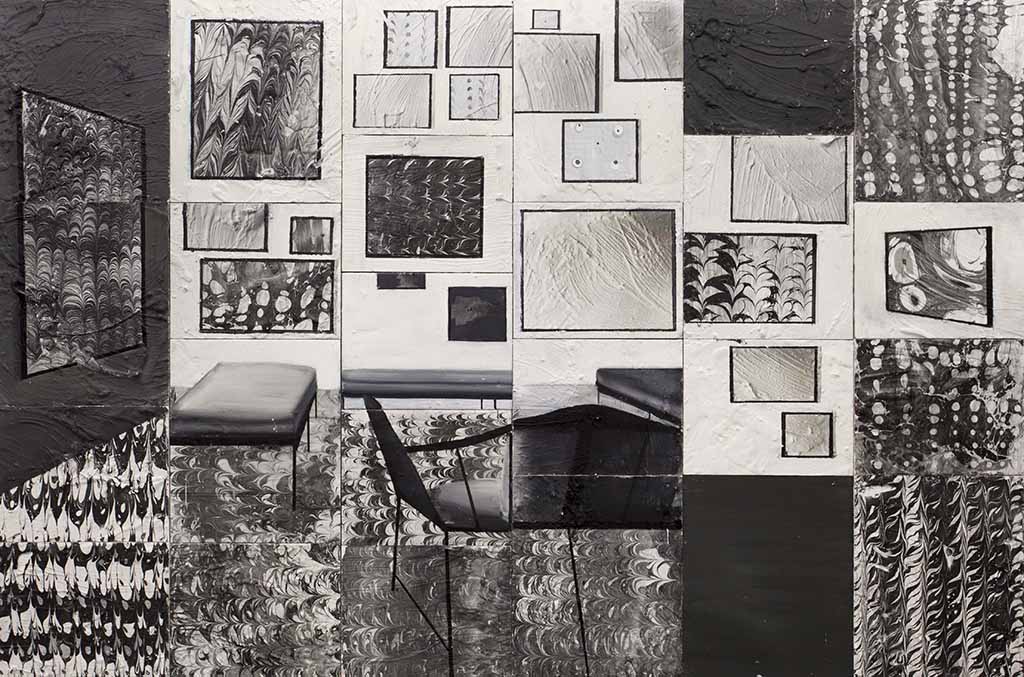
Inez De Brauw, The bustling foyer, 2018 – Water paint, ink, acrylic paint and plaster on wood panels, 78 x 118 inch
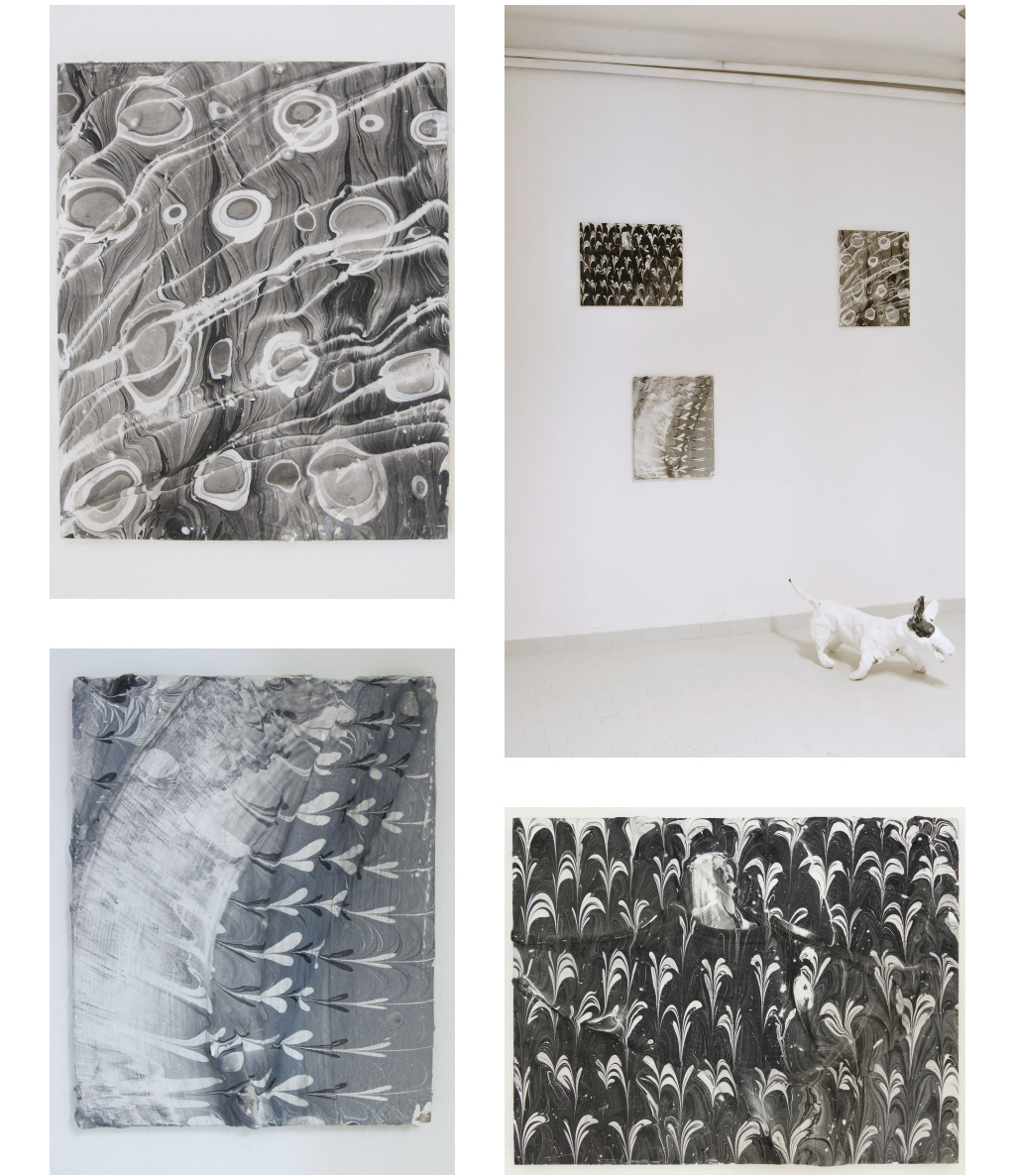
(ABOVE LEFT) Inez De Brauw, Migration of order XII, 2018 – Water paint on plaster on wood, 16 x 19 inch / (BELOW LEFT) Inez De Brauw, Migration of order XV, 2018 – Water on plaster on wood, 16 x 19 inch / (BELOW RIGHT) Inez De Brauw, Migration of order XIII, 2018 – Water paint on plaster on wood, 16 x 19 inch

Inez De Brauw, Installation view “Covert Motion”, 2018